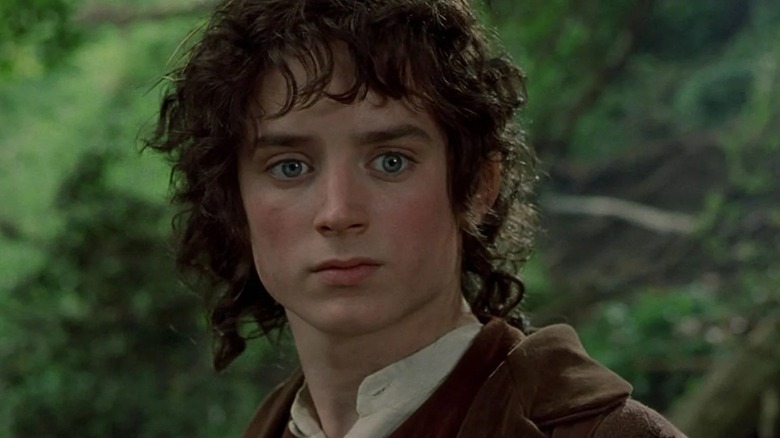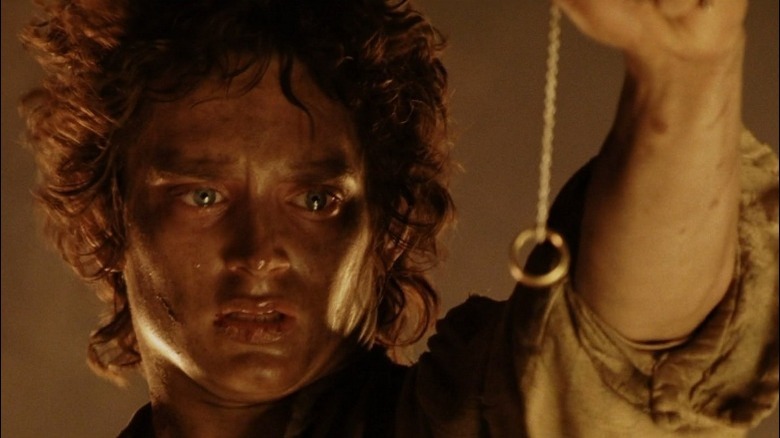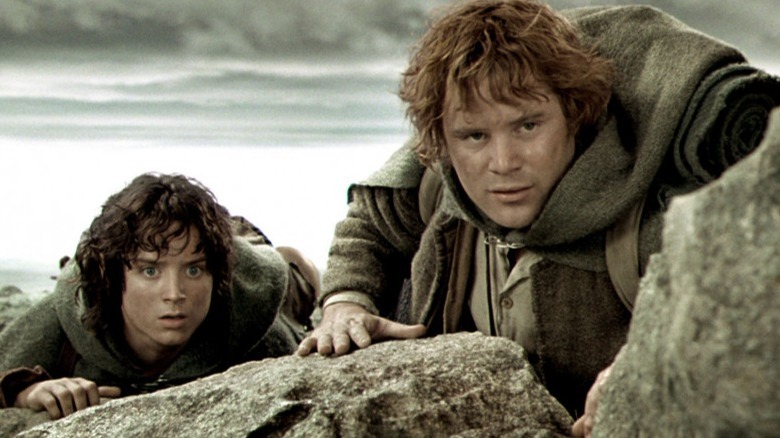Elijah Wood Believes Lord Of The Rings Couldn't Be Made The Same In 2021
No matter how many massive franchises come and go, "The Lord of The Rings" will always hold a special place in the hearts of millions of fans. Clearly, the movies are beloved because they're incredibly well-made, but with 20 years of retrospect, it's apparent that they were also made during a specific window of Hollywood filmmaking that benefited their creativity and ambition.
Elijah Wood, who famously played Frodo in the "Lord of The Rings" trilogy, spoke with The New York Times about the circumstances that allowed the trilogy to flourish when it was released in the early 2000s. According to the actor, "The Lord of The Rings" wouldn't be the same if it were made now — if it could be made now in the first place.
Filmmakers Could Do Their Own Thing
Wood cites two major changes to the film industry that separate current blockbusters from Peter Jackson's trilogy. The first is studio involvement. "There was a great sense of a lack of oversight," he tells The New York Times. He says Jackson and the other creatives behind the saga were able to make the necessary decisions "without much outside perspective." The movies were a part of New Line Cinemas, which later merged with Warner Bros.
It makes sense that "The Lord of the Rings" trilogy wouldn't be subject to the current studio system's strategy for managing IP. Before the superhero movie boom, studio executives weren't necessarily in the habit of thinking of movies as puzzle pieces that had to fit together with several other movies that don't even exist yet. Of course, at the time, it was also a big deal to greenlight three major movies and make them consecutively. "That doesn't mean the studio wasn't afraid or invested," Wood said of the filmmakers' creative control. "They knew the risk of making these films back to back."
The Internet Wasn't An Obstacle
Wood also says the new era of social media and instantaneous feedback is a problem "The Lord of The Rings" didn't have to face. "Look, the internet's different, too," the actor says, adding, "There was less scrutiny on the films." He describes how quaint it seems now that there were a couple of photographers trying to snap set pictures during filming. Compared to the modern onslaught of leaked images and slowly eked out first looks, "The Lord of The Rings" films were able to be as secretive as they wanted.
Wood doesn't indicate that one way is better or worse than the other, but simply reminisces about how it felt to be "able to make the movies in a bubble." I can't help but read this and imagine a live-action "Sonic"-like fiasco, where fans complained about the first photo they saw of hobbits and demanded reshoots where their feet looked smaller. Wood may not be passing judgment on the current landscape of the film industry, but his descriptions of the making of the trilogy certainly sound like a dream of a time gone by.
"The Lord of the Rings" trilogy is currently streaming on HBO Max.


